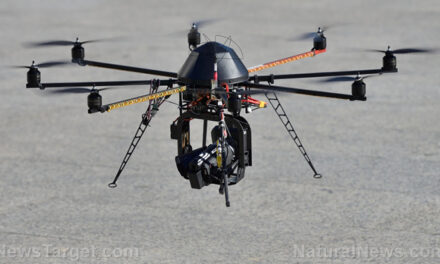We support our Publishers and Content Creators. You can view this story on their website by CLICKING HERE.
South Korean opposition party to file second impeachment motion against President Yoon
- The Democratic Party of Korea and all other opposition parties in the National Assembly have filed a second impeachment motion against President Yoon Suk Yeol, scheduled for a vote on Dec. 10.
- This comes after Yoon controversially declared martial law, citing alleged threats from North Korea. He was forced to rescind it just hours later after public outrage, and he later apologized and vowed not to impose martial law again.
- More ruling People Power Party members have signaled their support for impeachment, increasing its likelihood of passage.
- Analysts predict the second impeachment motion has a high chance of success.
- If impeached, Yoon could be removed from office after a six-month trial before the Constitutional Court, triggering a snap presidential election within two months.
South Korea’s political landscape remains in turmoil as opposition parties prepare to vote on a second impeachment motion against President Yoon Suk Yeol on Saturday, Dec. 14.
The motion, filed by the main liberal opposition Democratic Party of Korea (DPK) and five smaller opposition parties, seeks to remove Yoon from office over his controversial declaration of martial law on Dec. 3.
The impeachment effort has gained momentum as more members of the ruling People Power Party (PPP) signal their support for the motion, increasing the likelihood of its passage.
Yoon stunned the nation by declaring martial law, citing the need to protect the country from alleged threats posed by North Korea and accusing the opposition of being “anti-state forces.” (Related: Seoul deploys fighter jets as Russian and Chinese warplanes enter Korea Air Defense Identification Zone.)
The declaration, which was rescinded within hours following a unanimous vote by the National Assembly, sparked widespread public outrage, political chaos and financial market volatility. Yoon later apologized for the decree, stating he would not attempt to impose martial law again and would take responsibility for his actions.
However, the fallout from the martial law declaration has continued to escalate. Yoon faces multiple investigations into allegations of rebellion, abuse of power and other crimes. His former defense minister, Kim Yong-hyun, has been arrested, and police have searched Yoon’s office for evidence related to the martial law declaration. The president has also been banned from traveling overseas.
The impeachment motion requires at least 200 votes in the 300-member National Assembly to pass. All 192 members of the opposition are committed to voting in favor of impeachment, meaning that at least eight PPP members need to support it.
The first impeachment motion against Yoon failed on Dec. 7 after all but one of the PPP’s members boycotted the vote, preventing the motion from reaching the required quorum. However, the political landscape has shifted significantly since then. Public outrage has intensified, and mounting pressure on the ruling party has led to growing support for impeachment within the PPP.
Analysts believe second impeachment motion likely to succeed
The second impeachment motion was filed on Dec. 8 by the Democratic Party and five other opposition parties. The next day, seven PPP members went on the record hinting at voting in favor of impeachment. Political analysts have already predicted that the motion has a high likelihood of passing, noting four main factors that are driving this likelihood up.
The first is the anonymous voting process. The impeachment vote will be conducted via secret ballot, allowing PPP lawmakers to vote according to their conscience without party pressure.
The second is widespread public sentiment in favor of impeachment. The political environment has become very unfavorable to the ruling party, and if the PPP wants to survive the political fallout of the failed martial law declaration and the coming election to replace Yoon, more of its members need to show their opposition to him.
The third is growing internal divisions within the PPP. Party leader Han Dong-hoon has reversed his previous position on impeachment and is now publicly calling for Yoon’s removal. However, divisions within the party remain, with several members remaining opposed to impeachment.
The fourth and final factor is the legal and political risks facing the PPP. Yoon’s refusal to resign voluntarily has heightened the stakes for the PPP. If impeachment fails, the party risks being swept into a “political tsunami” alongside Yoon.
Conversely, supporting impeachment could delay the president’s removal until the Constitutional Court rules on the case, which could take up to 180 days – plenty of time for the PPP to figure out the party’s future after Yoon’s departure.
If the court rules against Yoon, he will be forced out of office and a presidential election will be called within two months. The outcome of the impeachment vote will have far-reaching implications for South Korea’s political stability, public trust in government institutions, and relations with key allies.
Watch this CBC report on the first failed impeachment attempt against Yoon.
This video is from the Cynthia’s Pursuit of Truth channel on Brighteon.com.
More related stories:
Intelligence report claims North Korea is supplying Russia with advanced military systems.
Sources include:

 Conservative
Conservative  Search
Search Trending
Trending Current News
Current News 





